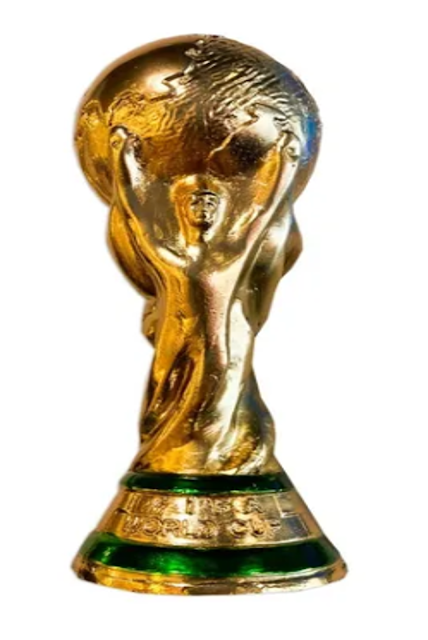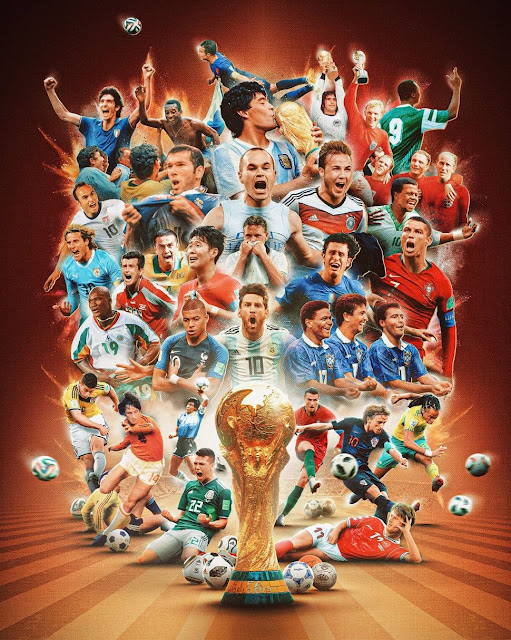Plural nouns - Sustantivos en plural y singular
En esta publicación te explicamos todo lo que necesitas saber sobre la formación del plural en inglés, puede resultar largo porque tiene muchos detalles y te damos un montón de ejemplos, en la medida que lo vas estudiando verás que es faciliiito.
A singular noun names only one person, place, animal, or thing.
A plural noun names more than one person, place, animal, or thing.
Un sustantivo singular es el nombre que le damos a una persona, animal, lugar o cosa (la cosa puede ser real, imaginaria o abstracta) .
Un sustantivo plural es el nombre que se le da a más de una persona, animal, cosa o lugar.
singular plural
brother brothers
beach beaches
dog dogs
pen pens
crisis crises
Cuando lo que quieres expresar es relacionado a cantidades es muy importante que tenga coherencia. Si es uno (1) es singular, si hablas de más de 1 cosa , es plural.
Sustantivos regulares, agrega "-s":
Reglas para colocación del plural "s", "es", "ies", "ves":
1) En inglés al igual que en español para formar el plural le agregas "s" al sustantivo del que hablas. Esto ocurre en la mayoría de los nombres de las cosas (sustantivos), son llamados SUSTANTIVOS REGULARES (porque siguen la regla de agregar "s" al final del sustantivo). Ejemplos:Singular Plural
book books
house houses
pencil pencils
television televisions
window windows
Es faciliiito, así ocurre en la mayoría de los casos, peeero..!! hay varias excepciones, para eso existen unas sencillas reglas que debes memorizar, si MEMORIZAR, según sea el caso de como termina la escritura o sonido de la palabra.
2)Cuando la palabra termina en "ch", "x", "s", "sh", o sonidos como "z" y "s", formamos los plurales pero añadiendo "es" al final de la palabra.
singular plural singular plural
church churches lunch lunches
watch watches match matches
sandwich sandwiches touch touches
fox foxes fax faxes
box boxes tax taxes
class classes kiss kisses
gas gases bus buses
bruch bruches ash ashes
bush bushes dish dishes
wish wishes flash flashes
quizz quizzes (sonido /z/) prize prizes
price prices (sonido /s/) face faces
3) Cuando la palabra termina en "o" se presentan varias condiciones, las cuales pueden tener excepciones y te la resumimos así:
a) Por lo general se le agrega "s":
singular plural
piano pianos
photo photos
bingo bingos
tango tangos
ego egos
solo solos
soprano sopranos
auto autos
casino casinos
b) Si la palabra termina en "vocal + o", simplemente se le agrega la "s":
singular plural singular plural
portafolio portafolios studio studios
stereo stereos kangaroo kangaroos
tattoo tattoos
zoo zoos
video videos
radio radios
c) En muchos casos de palabras que terminan con "consonante + o" se agrega "es"
singular plural singular plural
tomato tomatoes mango mangoes
potato potatoes domino dominoes
hero heroes zero zeroes
volcano volcanoes echo echoes
mosquito mosquitoes
4) Cuando la palabra termina en "y" se presentan dos casos
a) palabras que terminan en "vocal + y", sencillamente se les agrega la "s":
singular plural singular plural
toy toys day days
key keys donkey donkeys
boy boys holiday holidays
tray trays valley valleys
highway highways way ways
b) Cuando terminan en "consonante + y". Se elimina la "y" y se cambia a "ies"
singular plural singular plural
family families party parties
baby babies lady ladies
puppy puppies company companies
city cities country countries
agency agencies urgency urgencies
tendency tendencies diary diaries
copy copies library libraries
butterfly butterflies story stories
5) Muchas palabras que terminan en "f" o "fe", se sustituye el final por "ves":
singular plural singular plural
wolf wolves knife knives
half halves thief thieves
leaf leaves elf elves
wife wives shelf shelves
life lives beef beeves
Nota: esta regla tiene varias excepciones, como en: beliefs, chiefs, roofs, cuffs, cliffs, sheriffs.
6) Existen palabras en inglés que no tienen forma singular o tienen la misma forma en singular y plural, aunque en español si tienen ambas:
singular plural singular español plural español
species species especie especies
salmon salmon salmón salmones
series series serie series
cod cod bacalao bacalaos
squid squid calamar calamares
deer deer ciervo, venado ciervos, venados
goods goods producto, mercancia productos, compras
news news noticia noticias
stairs stairs escalera escaleras
thanks thanks - gracias
scissors scissors tijera tijeras
shorts shorts pantalón corto pantalones cortos
trousers trousers pantalón pantalones
glasses glasses lente lentes
fish fish (varios peces de la misma especie)
fish fishes (varios peces de diferentes especies, o después de ser capturados)
7) Algunos sustantivos en inglés son tomados de otros idiomas y poseen la forma plural del idioma de origen:
singular plural
bacterium bacteria
cactus cacti
crisis crises
phenomemon phenomena
8) Algunas materias de estudio o ciencias suelen emplearse en plural, pero con el verbo en singular:
I study physics estudio física
economics, phonetics, mathematics
9) En inglés (al revés del castellano) los apellidos se emplean en plural cuando se refieren a varios miembros de la familia:
I have seen the Howards He visto a los Howard
The Garcias live here Aquí viven los García.
singular plural singular plural
foot feet person people
tooth teeth child children
mouse mice deer deer
man men ox oxen
woman women goose geese
axis axes analisys analises
basis bases diagnosis diagnoses
oasis oases parenthesis parentheses
sheep sheep
Dos detallitos importantes acerca de cuando no se usa el plural:
correcto incorrecto español
big eyes bigs eyes ojos grandes
yellow shirts yelows shirts camisas amarillas
Venezuelan women venezuelans women mujeres venezolanas
Ahora a practicar, click aqui para ejercicios interactivos.
Elabora este crucigrama, reconociendo como son los plurales. CLICK AQUI.
Resuelve estos ejercicios en tu cuaderno o puedes descargar, imprimir y resolverlos:
No hemos terminado. Ahora la PRONUNCIACIÓN DEL PLURAL. Sí, bien sea le agregues "s, es, ies, ves o sea irregular" a la hora de hablar es muy importante la pronunciación si quieres que tu comunicación suene más natural, parecida a un hablante nativo. Estos vídeos están geniales.
Recuerda suscribirte para recibir nuestras clases gratis en tu correo.
Ahora no te olvides de comentar y compartir este blog, para que tus conocidos se enteren de lo que estás aprendiendo,
click aquí abajo 👇↓⬇️
b) Si la palabra termina en "vocal + o", simplemente se le agrega la "s":
singular plural singular plural
portafolio portafolios studio studios
stereo stereos kangaroo kangaroos
tattoo tattoos
zoo zoos
video videos
radio radios
c) En muchos casos de palabras que terminan con "consonante + o" se agrega "es"
singular plural singular plural
tomato tomatoes mango mangoes
potato potatoes domino dominoes
hero heroes zero zeroes
volcano volcanoes echo echoes
mosquito mosquitoes
4) Cuando la palabra termina en "y" se presentan dos casos
a) palabras que terminan en "vocal + y", sencillamente se les agrega la "s":
singular plural singular plural
toy toys day days
key keys donkey donkeys
boy boys holiday holidays
tray trays valley valleys
highway highways way ways
b) Cuando terminan en "consonante + y". Se elimina la "y" y se cambia a "ies"
singular plural singular plural
family families party parties
baby babies lady ladies
puppy puppies company companies
city cities country countries
agency agencies urgency urgencies
tendency tendencies diary diaries
copy copies library libraries
butterfly butterflies story stories
5) Muchas palabras que terminan en "f" o "fe", se sustituye el final por "ves":
singular plural singular plural
wolf wolves knife knives
half halves thief thieves
leaf leaves elf elves
wife wives shelf shelves
life lives beef beeves
Nota: esta regla tiene varias excepciones, como en: beliefs, chiefs, roofs, cuffs, cliffs, sheriffs.
6) Existen palabras en inglés que no tienen forma singular o tienen la misma forma en singular y plural, aunque en español si tienen ambas:
singular plural singular español plural español
species species especie especies
salmon salmon salmón salmones
series series serie series
cod cod bacalao bacalaos
squid squid calamar calamares
deer deer ciervo, venado ciervos, venados
goods goods producto, mercancia productos, compras
news news noticia noticias
stairs stairs escalera escaleras
thanks thanks - gracias
scissors scissors tijera tijeras
shorts shorts pantalón corto pantalones cortos
trousers trousers pantalón pantalones
glasses glasses lente lentes
fish fish (varios peces de la misma especie)
fish fishes (varios peces de diferentes especies, o después de ser capturados)
7) Algunos sustantivos en inglés son tomados de otros idiomas y poseen la forma plural del idioma de origen:
singular plural
bacterium bacteria
cactus cacti
crisis crises
phenomemon phenomena
8) Algunas materias de estudio o ciencias suelen emplearse en plural, pero con el verbo en singular:
I study physics estudio física
economics, phonetics, mathematics
9) En inglés (al revés del castellano) los apellidos se emplean en plural cuando se refieren a varios miembros de la familia:
I have seen the Howards He visto a los Howard
The Garcias live here Aquí viven los García.
The Browns are very good neighbours. Los Brown son muy buenos vecinos.
LOS SUSTANTIVOS IRREGULARES. Plurales irregulares
Los plurales irregulares son aquellos que cambian su forma al plural sin agregar "s", cambian a su estilo muy particular, sin seguir ninguna regla, simplemente te los tienes que aprender de memoria (así como ocurre con los verbos irregulares para cambiar al pasado) algunos son:singular plural singular plural
foot feet person people
tooth teeth child children
mouse mice deer deer
man men ox oxen
woman women goose geese
axis axes analisys analises
basis bases diagnosis diagnoses
oasis oases parenthesis parentheses
sheep sheep
Dos detallitos importantes acerca de cuando no se usa el plural:
- Recuerda que los adjetivos en inglés no llevan plural (aunque estén acompañando a un sustantivo plural), a diferencia del español: No se les agrega "s" a: colores, tamaños, formas, nacionalidades, materiales, descripción de calidad, uso, antinguedad, etc. (Adjetivos: Spanish, Mexican, Colombian, blue, red, small, tall, old, new, plastic, etc.)
big eyes bigs eyes ojos grandes
yellow shirts yelows shirts camisas amarillas
Venezuelan women venezuelans women mujeres venezolanas
- Recuerda que los sustantivos no contables (uncountable nouns) no usan plural, no usan artículo "a- an", no se pueden contar. Por lo tanto siempre lo debes usar en singular, éstos son:
a) Sustantivos que hacen referencia a materiales o substancias: water, air, paper, glass, coffee, wine, sugar, flour, coffee, rice, salt, milk, oil, tea, bread, butter, meat, gold, iron, toothpaste, paper, etc.
b) Sustantivos que hacen referencia a nociones y conceptos abstractos: beauty, intelligence, chance, destiny, happiness, time, knowledge, information, vocabulary, advice, music, poetry, history, literture, generosity, help, health, patience, time, luck, honesty, imagination, etc.
c)Otros sustantivos: money, news, furniture, work, hair, pollution, air, smog, weather, rain, snow, susshine, thunder, etc.
Ahora a practicar, click aqui para ejercicios interactivos.
Elabora este crucigrama, reconociendo como son los plurales. CLICK AQUI.
Resuelve estos ejercicios en tu cuaderno o puedes descargar, imprimir y resolverlos:
No hemos terminado. Ahora la PRONUNCIACIÓN DEL PLURAL. Sí, bien sea le agregues "s, es, ies, ves o sea irregular" a la hora de hablar es muy importante la pronunciación si quieres que tu comunicación suene más natural, parecida a un hablante nativo. Estos vídeos están geniales.
Recuerda suscribirte para recibir nuestras clases gratis en tu correo.
Ahora no te olvides de comentar y compartir este blog, para que tus conocidos se enteren de lo que estás aprendiendo,
click aquí abajo 👇↓⬇️












